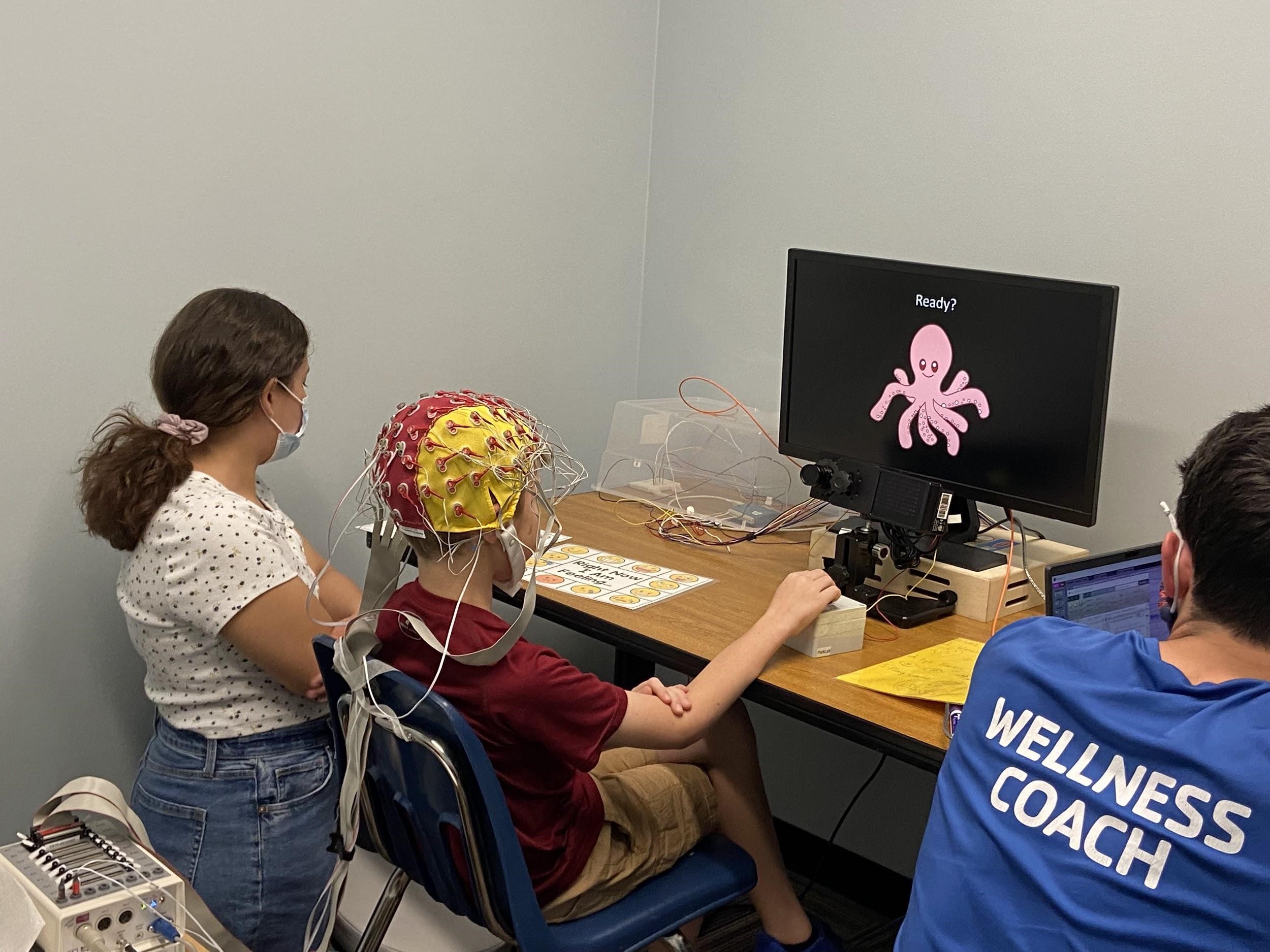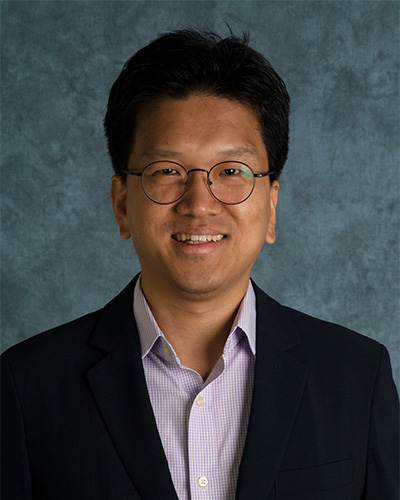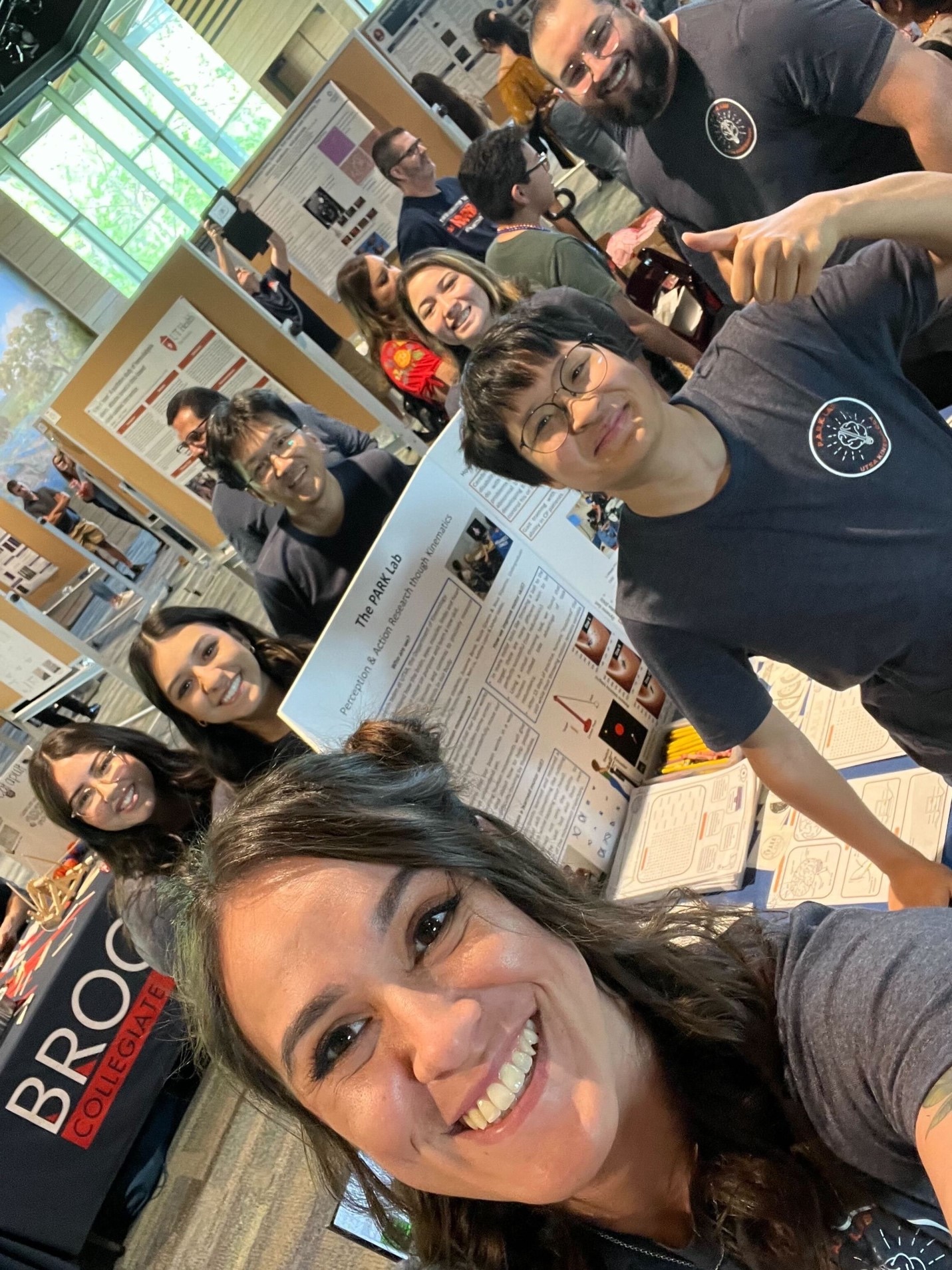 The Laboratory for Perception and Action Research through Kinematics (the PARK Lab) studies how human sensorimotor systems change while we learn a novel motor skill. To better elucidate the complex nature of motor learning, we utilize theoretical and experimental approaches as combining neurophysiological and behavioral measures, such as electroencephalography (EEG), eye-tracking system, electromyography (EMG), and multi-joint continuous kinematics.
The Laboratory for Perception and Action Research through Kinematics (the PARK Lab) studies how human sensorimotor systems change while we learn a novel motor skill. To better elucidate the complex nature of motor learning, we utilize theoretical and experimental approaches as combining neurophysiological and behavioral measures, such as electroencephalography (EEG), eye-tracking system, electromyography (EMG), and multi-joint continuous kinematics.

About the lab
The PARK Lab is a research lab specializing in perception and action studies to elucidate mechanisms involved in neuromotor control and plasticity after long-term practice. Our main approaches include kinematics analysis and neurophysiological analysis including electroencephalography (EEG, Biosemi Actiview 2 64-ch) and electromyography and inertial movement units (EMG and IMU; Delsys Trigno 10-ch). The lab is also equipped with a Eyelink 1000 Plus (SR Research) eye-tracking system. The lab is the home of the team of students who all have it as their primary working area. The experimental lab houses the EEG/EMG/eye-tracking station.
Equipment
-
64-channel EEG system (Biosemi)
-
EyeLink 1000 Plus eye-tracking system with head rest.
-
Delsys Trigno Wireless EMG+IMU system: 8 Avanti and 2 Mini sensors
-
Custom-designed apparatus for recording forearm rotations in the virtual environment (i.e., projector screen). The equipment is designed for bimanual forearm movement and unimanual object projection (i.e., throwing a virtual ball).
About the Director
Se-Woong Park is an Assistant Professor in the Department of Kinesiology at the University of Texas at San Antonio. His research questions are in line with current topics in sensorimotor neuroscience, such as how humans acquire and retain a novel sensorimotor skill and how humans maneuver sensorimotor noise as they improve motor performance. His approaches to these questions range from computational neuroscience and electrophysiology. He has recently been interested in identifying behavioral phenotype in individuals with autism spectrum disorder in the sensorimotor domain. He was trained in the field of physical and behavioral sciences as he obtained his BS in Physics at Korea Advanced Institute of Science and Technology and MS in Cognitive Science at Seoul National University. Then, he moved to the US to participate in electrophysiological studies at the Smith-Kettlewell Eye Research Institute in San Francisco, CA, before he started his PhD at Northeastern University in Boston, MA. After completing his PhD in 2014, he conducted various projects on motor control and learning at Northeastern University and MIT. In 2019, he was appointed as Affiliate Faculty at the Autism Research Center at UTSA where he initiated an EEG project with infants at high risk of ASD.
 Current Members
Current Members
Graduate students: Suzanne Byrne, Jesus Siqueiros
Undergraduate students: Malik Burnley, Mary Carroll, Brittini Figueroa, Giselle Gonzalez, Neil Liu, Amber Valdez
Previous Members
Graduate students: Nicole Gramm, Remington Angel, Michael Stewart, Syiece Bowie
Undergraduate students: Andrea Lopez, Baylor Cook, Denys Tavares, Tayler Bowen, Roberto Valadez, Timothy Smith
Research Opportunities
Research opportunities may be available to qualified and well-motivated undergraduate and graduate students. The undergraduate students may earn course-credits through research opportunities (KIN4913 Independent Study, KIN4933 Practicum in Kinesiology Research). The Master’s students may work on a thesis project under the direction of a Kinesiology faculty member. Funding may also be available to assist the research work of undergraduate and graduate students. For more information please contact the laboratory supervising faculty.

